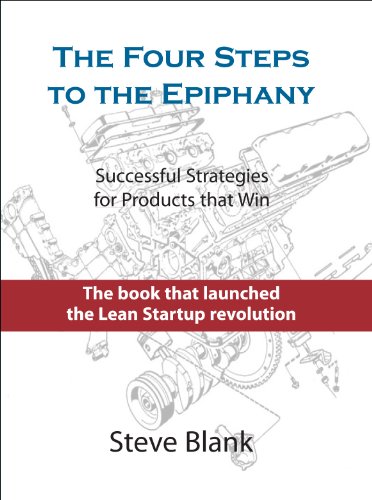The Four Steps to the Epiphany by Steve Blank Link to heading
Summary Link to heading
“The Four Steps to the Epiphany” is a seminal work by Steve Blank that explores the concept of Customer Development, a methodology that complements and challenges the traditional Product Development model used by startups. The book introduces readers to a structured approach for discovering and validating business models, emphasizing the importance of understanding customer needs through direct engagement rather than relying solely on intuition or assumptions. It proposes a four-step process: Customer Discovery, Customer Validation, Customer Creation, and Company Building, aimed at helping startups transition from idea to a scalable and profitable venture.
Review Link to heading
“The Four Steps to the Epiphany” has been highly influential in the startup ecosystem, providing a framework that has been widely adopted and adapted, most notably by the Lean Startup movement. One of the book’s strengths is its practicality, offering real-world tools and scenarios that entrepreneurs can apply directly to their ventures. However, some readers might find the detailed and somewhat technical nature of the content to be dense or challenging without prior business knowledge. Nonetheless, its impact on modern startup execution is undeniable, reshaping how entrepreneurs approach the creation and scaling of new companies.
Key Takeaways Link to heading
- Customer Development Model: Understand your customers thoroughly before committing to building your product.
- Iterative Feedback: Engage in continuous loops of feedback to refine your business model based on actual customer experiences.
- Market Testing: Validate assumptions through rigorous testing and pivot when evidence suggests a different direction.
- Cross-Functional Teams: Foster collaboration across diverse teams to drive innovation and comprehensive solutions.
Recommendation Link to heading
This book is highly recommended for entrepreneurs, startup founders, and business students who are interested in mastering the intricacies of launching successful startups. It’s also valuable for anyone looking to shift from a purely product-focused development strategy to a customer-centric approach, ensuring that solutions are not just inventive but also market-ready and sustainable.
